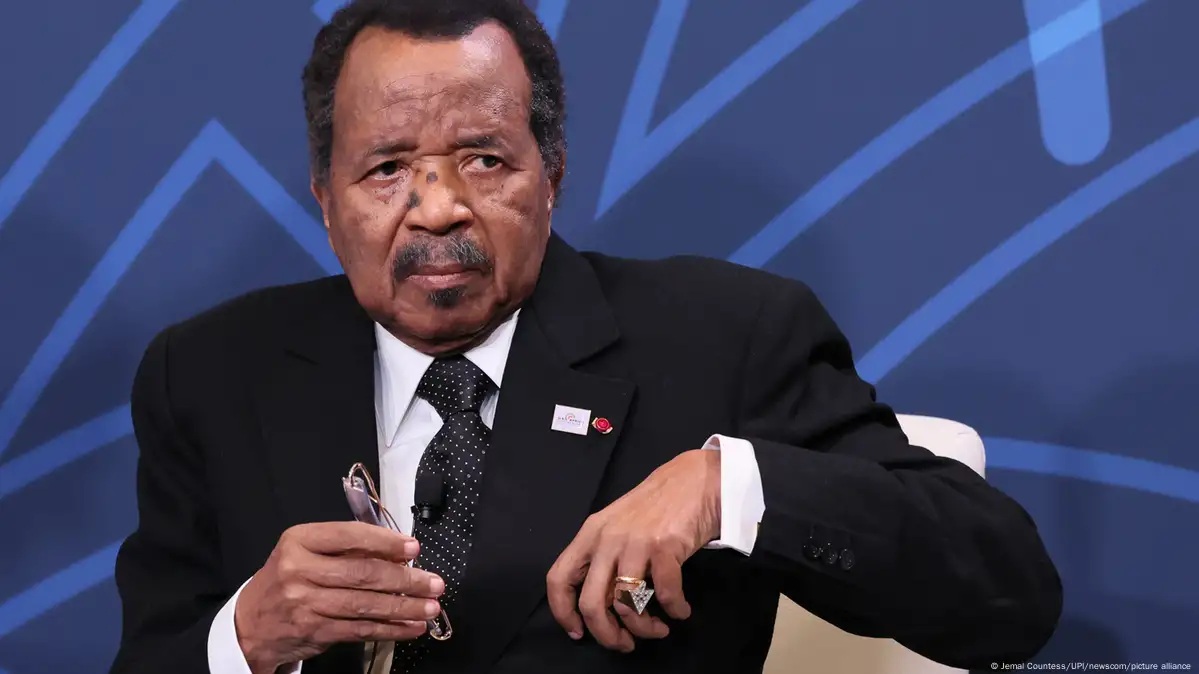President Paul Biya of Cameroon, who is currently the world’s oldest sitting head of state at 92, has officially declared his intention to seek an eighth term in the country’s upcoming presidential election, scheduled for October 12.
The long-serving leader made the announcement via social media on Sunday, posting in both English and French on his verified X (formerly Twitter) account.
“I am a candidate in the presidential election,” Biya stated, adding, “My commitment to serve you remains as strong as ever, especially in light of the urgent challenges facing our nation.”
Biya first came to power in 1982, following the resignation of then-President Ahmadou Ahidjo.
Over the course of more than four decades, Biya has remained a dominant figure in Cameroonian politics.
If successful in October’s election, his new term could see him remain in office until nearly 100 years of age.
Speculation about the president’s health has been persistent in recent years, particularly after he vanished from the public eye for 42 days in 2023.
While rumors of ill health circulated widely during that time, the government dismissed the concerns and banned public discourse about his condition, labeling it a matter of national security.
Although Biya’s candidacy was widely anticipated, his confirmation on social media reignited conversations about his long rule.
The president has increasingly turned to digital platforms in recent years to make key political announcements.
His 2018 campaign was also launched via social media, a notable shift in how he engages with the public.
Supporters within the ruling Cameroon People’s Democratic Movement (CPDM) have been openly urging Biya to pursue another term since last year.
However, opposition voices and civil society activists argue that his prolonged rule has hindered political progress and economic development in the country.
Nkongho Felix Agbor, a prominent human rights lawyer and advocate, criticized the move.
“President Biya’s decision to run again highlights Cameroon’s stalled political evolution.
After over 40 years in power, what the country truly needs is renewal and reform, not continuity,” he told the Associated Press.
Biya’s rare public appearances and increasing reliance on close aides, particularly his powerful chief of staff, have further fueled concerns about his capacity to lead.
Critics argue that the nation’s political system has become too centralized, with limited transparency and accountability.
In 2008, Biya oversaw the removal of presidential term limits, effectively paving the way for an indefinite stay in power.
His most recent victory in the 2018 election, where he reportedly secured 71.28% of the vote, was marred by widespread allegations of electoral fraud and irregularities by opposition groups.
Cameroon, a Central African nation rich in cocoa and oil, has experienced a complex mix of economic hardship and security threats under Biya’s leadership.
The country continues to grapple with a prolonged separatist conflict in its English-speaking regions and ongoing attacks by Boko Haram insurgents in the north.
The presidential race is expected to be highly contested. Several opposition figures have already thrown their hats into the ring.
Notable among them are:
- Maurice Kamto of the Cameroon Renaissance Movement, who was the runner-up in 2018; Joshua Osih of the Social Democratic Front;
- lawyer and former Transparency International vice president Akere Muna; and,
- Cabral Libii of the Cameroon Party for National Reconciliation.
All of these candidates have voiced strong criticism of Biya’s extended tenure, calling for democratic reforms and mechanisms to ensure a transparent and credible electoral process.
Cameroon has had only two presidents since gaining independence from France and the United Kingdom in the early 1960s.
Analysts warn that if Biya’s health declines further or if he dies while in office, the country could face a turbulent succession crisis, given the absence of a clear transitional framework.
As the October election approaches, Biya’s decision to remain in the race is certain to intensify national debate.
This debate is not only about leadership and governance but also about the future direction of a country long defined by one man’s enduring rule.



